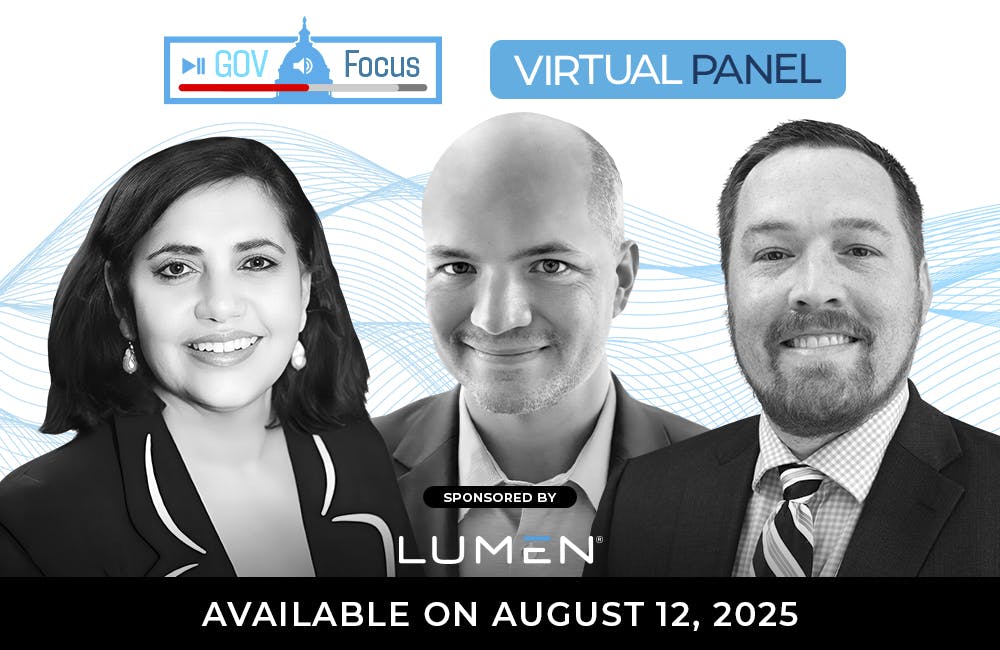Federal CIO Stresses Skilling, Diversifying Workforce for Future of Fed IT
Agencies need a robust, ready workforce to take on top IT challenges and goals of the new decade.

Amid agency efforts to modernize and improve data-driven capabilities, cybersecurity, digital services and IT modernization overall for the coming decade, the federal IT community must bolster and foster a diverse, well-skilled workforce first, Federal CIO Suzette Kent said.
At Tuesday’s Micro Focus Government Summit, Kent presented key areas of federal IT modernization and transformation for the long-term future, from building robust cybersecurity operations and architectures to strategically leveraging data. Kent added that having a skilled and future-ready workforce is key to realizing the goals she has for the 2020 decade.
“We’re making major investments in tools, improving the quality of information-sharing, elevating how we look at all our agencies as an enterprise,” Kent said. “But [amid] all the great work, we still need the diligent human behaviors that protect our federal networks and the data that is on those networks.”
For the federal IT community to start pursuing strategies like zero trust and DevSecOps in their cybersecurity, Kent said that it will require major work on network architectures and diverse insight and technical capabilities from the individuals who will build and implement that zero-trust model.
Pursuing these new models of security may also require a new approach to both structuring the workforce and empowering teams, Kent added. All the while, she underscored that the coming decade will also bring new challenges in supply chain security, and that agency cyber personnel will need to bring an equally new vigilant and discipline approach to their work.
On top of security concerns, agencies will also focus on harnessing the power of federal data in the future. Kent touched upon the Federal Data Strategy, which calls for 20 actions for agencies to complete over the course of 2020 and intends to direct agencies in leveraging data over the next decade. She highlighted that agencies are now tasked with understanding how they want to use their data to meet their missions.
“The number one thing that is in the data strategy is to ask agencies, what are the critical questions that they want to solve with data and to do that at the mission level,” Kent said, adding that “some of the work that we will do in the data area is the most important work for how we position ourselves for decades to come.”
But to realize this decade-long process of the Federal Data Strategy, Kent returned to the importance of a robust, skilled workforce that can deliver on the action plans, policies and principles of the data strategy.
“We’re taking significant actions to build cyber skills, but data science, cloud and automation technologies … many of these technologies that we can harness to help agencies better serve mission,” Kent said. “It’s critical that we acquire and build those skills.”
In terms of delivering federal digital services, Kent underscored the importance of diversity in the workforce.
“When we talk about the digital experience, that means you need to understand the customer that you’re serving,” Kent said. “When we talk about the way that we deliver products and services to citizens, you have to have a broad perspective, and we have to be very focused and programmatic around how we drive diversity in those teams.”
Combined, these efforts for the coming decade are meant to deliver services for and build trust with American citizens. Having the diverse and skilled federal workforce to build trustworthy IT solutions across the government will be key to the 2020s.
“Fluid relationships of architectures, organization and information — that ties with the things that I just talked about around not only the use of data, but the integration of how that is used in with technology and the dialogue with citizen constituencies,” Kent said. “There was an interested point that said, talk about the importance of trust and the continued evolution of trust. … I think it’s really important for us to think about [this] as we’re building capabilities inside the federal government.”
This is a carousel with manually rotating slides. Use Next and Previous buttons to navigate or jump to a slide with the slide dots
-

Navy Expands Black Pearl Capabilities to Drive Operational Resilience
The Department of the Navy's Black Pearl software factory and Innovation Adoption Kit boost software development and operational resilience.
5m read -

Modernizing IT Systems for AI Adoption
USPS, NIH and Lumen discuss how modernization, data strategies and security are shaping AI’s future role in government.
20m watch -

DOD Accelerates Software Modernization with Agile DevSecOps Push
The Pentagon's software implementation plan tackles cultural hurdles and integrates security early to deliver critical capabilities faster.
6m read -

Doing More with Less is Muscle Memory for IRS, Former Deputy CIO Says
Darnita Trower discusses her experience, the legacy she’s left behind and how she pushed the IRS to modernize itself,
20m watch








